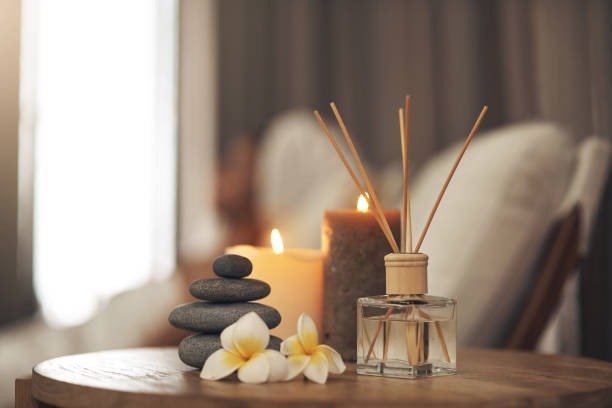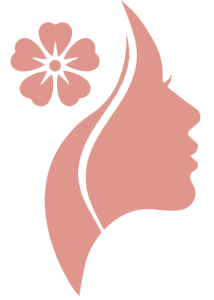The Power of Aromatherapy Oils: Natural Remedies for Mind and Body
Aromatherapy has been used for centuries as a natural way to promote physical, emotional, and mental well-being. At the heart of this holistic practice are essential oils—concentrated plant extracts that capture the natural scent and healing properties of the source. These oils, when used correctly, can provide a wide range of benefits, from reducing stress and improving sleep to boosting energy and aiding digestion.
In this article, we explore different types of aromatherapy oils categorized by their key benefits, helping you understand which oils to use for specific needs.
1. Essential Oils for Stress Relief and Relaxation
One of the most popular uses of aromatherapy is stress reduction. Certain essential oils have calming effects that help soothe the nervous system and promote relaxation.
a. Lavender Oil
Lavender is perhaps the most well-known essential oil for relaxation. Its floral aroma is proven to reduce anxiety, lower blood pressure, and improve sleep quality. It works by stimulating the parasympathetic nervous system, encouraging the body to rest and digest.
Common uses:
-
Add a few drops to a diffuser before bed
-
Mix with a carrier oil for a calming massage
-
Add to bathwater for a relaxing soak
b. Chamomile Oil
Roman chamomile has anti-anxiety properties that can calm the mind and help with insomnia. It is especially helpful for people dealing with irritability, overthinking, or restlessness.
c. Bergamot Oil
Bergamot, a citrus fruit oil, is uplifting yet soothing. It’s great for people experiencing anxiety and mild depression. It helps in balancing mood and emotions.
2. Essential Oils for Energy and Focus
Feeling sluggish or mentally foggy? Some essential oils have stimulating properties that increase alertness and concentration.
a. Peppermint Oil
Peppermint’s minty aroma is invigorating and sharpens mental clarity. It can improve focus and physical performance while also helping with headaches and fatigue.
Common uses:
-
Inhale directly from the bottle for a quick energy boost
-
Diffuse during work or study sessions
-
Mix with a carrier oil and apply to temples
b. Rosemary Oil
Rosemary has been associated with memory enhancement and mental stimulation. Studies have shown it can improve cognitive performance and concentration.
c. Lemon Oil
Lemon essential oil is refreshing and energizing. It helps uplift the mood and reduce feelings of exhaustion. Its clean scent is also commonly used in morning routines to kickstart the day.
3. Essential Oils for Sleep and Insomnia
If you struggle to fall asleep or wake up frequently during the night, these oils can help promote deep, restful sleep.
a. Cedarwood Oil
Cedarwood has a warm, woody scent that helps stimulate the production of melatonin—the sleep hormone. It calms the mind and supports a grounded, peaceful state.
b. Ylang Ylang Oil
This floral oil helps reduce heart rate and blood pressure, encouraging the body to relax. It’s ideal for those whose sleep issues stem from anxiety or high stress levels.
How to use for sleep:
-
Add 4–5 drops to a diffuser in the bedroom
-
Make a pillow spray by mixing with water and alcohol
-
Add a few drops to a warm bath
4. Essential Oils for Immune Support
Many essential oils have antiviral, antibacterial, and antifungal properties that can support the immune system and prevent illness.
a. Tea Tree Oil
Tea tree oil is a powerful antimicrobial agent. It’s effective for cleaning the air, skin, and surfaces. While it’s often used topically, it can also be diffused to purify the environment.
b. Eucalyptus Oil
With strong decongestant properties, eucalyptus helps open airways, making it ideal for colds, sinusitis, and respiratory conditions. It also supports the immune system.
c. Oregano Oil
Oregano oil contains carvacrol, a compound known for its antibacterial properties. It’s commonly used as a natural remedy for colds and infections, although it must be heavily diluted for use.
5. Essential Oils for Pain Relief
Aromatherapy oils can also help manage pain, whether from sore muscles, headaches, or chronic conditions like arthritis.
a. Clove Oil
Clove oil is a natural analgesic and anti-inflammatory. It’s especially useful for dental pain and muscle soreness.
Note: Clove oil should always be diluted before applying to skin.
b. Ginger Oil
Ginger essential oil warms the body and promotes circulation. It’s effective for joint pain and stiffness, particularly in people with arthritis or rheumatism.
c. Marjoram Oil
This lesser-known oil has calming and muscle-relaxing effects, ideal for cramps and tension-related pain.
6. Essential Oils for Skin and Beauty
Aromatherapy oils are also used in skincare due to their regenerative and antibacterial qualities.
a. Frankincense Oil
Frankincense promotes skin regeneration and helps reduce scars, fine lines, and wrinkles. It also has a grounding scent that can reduce stress-related skin issues.
b. Geranium Oil
Geranium balances oil production, making it ideal for both dry and oily skin. It’s also used to treat acne, eczema, and dermatitis.
c. Rose Oil
One of the most luxurious essential oils, rose oil hydrates the skin, reduces redness, and promotes a youthful glow.
How to use for skin:
-
Mix with carrier oils like jojoba or argan
-
Add to facial serums or moisturizers
-
Use in DIY face masks
How to Use Aromatherapy Oils Safely
While essential oils are natural, they are very potent and should be used with care. Here are some safety tips:
-
Always dilute before applying to the skin – Mix with a carrier oil like coconut, almond, or jojoba.
-
Do a patch test – Check for allergic reactions before widespread use.
-
Avoid internal use unless directed by a qualified professional.
-
Use high-quality oils – Look for 100% pure, therapeutic-grade oils from reputable brands.
-
Store properly – Keep oils in dark, airtight bottles away from sunlight and heat.
Conclusion
Aromatherapy oils offer a natural, holistic way to enhance well-being across various areas of life. Whether you’re looking to calm your mind, energize your body, relieve pain, or improve your skin, there’s an essential oil that can support your goals.
The key to effective aromatherapy is choosing the right oil for your specific needs and using it safely and consistently. With mindful use, these powerful plant essences can become a valuable part of your daily self-care routine.


